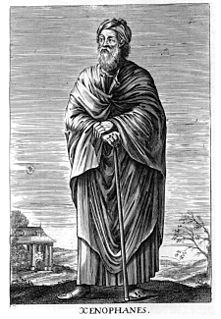A Quote by Ernest Hemingway
If a writer stops observing he is finished. But he does not have to observe consciously nor think how it will be useful. Perhaps that would be true at the beginning. But later everything he sees goes into the great reserve of things he knows or has seen.
Related Quotes
The writer is a spiritual anarchist, as in the depth of his soul every man is. He is discontented with everything and everybody. The writer is everybody's best friend and only true enemy-the good and great enemy. He neither walks with the multitude nor cheers with them. The writer who is a writer is a rebel who never stops
Man no longer lives in the beginning--he has lost the beginning. Now he finds he is in the middle, knowing neither the end nor the beginning, and yet knowing that he is in the middle, coming from the beginning and going towards the end. He sees that his life is determined by these two facets, of which he knows only that he does not know them
In that one slight motion, I see the end of hope, beginning of destruction of everything I hold dear in the world. I can't guess what form my punishment will take, how wide the net will be cast, but when it is finished there most likely be nothing left. So you would think that at this moment, I would be in utter despair.
Observe and contemplate on the hidden things of life: how a man's seed is but the beginning, it takes others to bring it to fruition. Think how food undergoes such changes to produce health and strength. See the power of these hidden things which, like the wind cannot been seen, but its effects can be.
I like a person who knows his own mind and sticks to it; who sees at once what is to be done in given circumstances and does it. He does not beat about the bush for difficulties or excuses, but goes the shortest and most effectual way to work to attain his own ends, or to accomplish a useful object.
No grand inquisitor has in readiness such terrible tortures as has anxiety and no spy knows how to attack more artfully the man he suspects, choosing the instant when he is weakest; nor knows how to lay traps where he will be caught and ensnared as anxiety knows how, and no sharp-witted judge knows how to interrogate, to examine the accused, as anxiety does, which never lets him escape.
If a writer of prose knows enough about what he is writing about he may omit things that he knows and the reader, if the writer is writing truly enough, will have a feeling of those things as strongly as though the writer had stated them. The dignity of movement of an iceberg is due to only one-eighth of it being above water. A writer who omits things because he does not know them only makes hollow places in his writing.
Don't judge or analyze what you observe. Watch the thought, feel the emotion, observe the reaction. Don't make a personal problem out of them. You will then feel something more powerful than any of those things that you observe: the still, observing presence itself behind the content of your mind, the silent watcher.
When asked how she knows when her writing is where she wants it to be: "I know when it's the best I can do. It may not be the best there is. Another writer may do it much better. But I know when it's the best I can do. I know that one of the great arts that the writer develops is the art of saying, 'No. No, I'm finished. Bye.' And leaving it alone. I will not write it into the ground. I will not write the life out of it. I won't do that."
God knows; I won't be an Oxford don anyhow. I'll be a poet, a writer, a dramatist. Somehow or other I'll be famous, and if not famous, I'll be notorious. Or perhaps I'll lead the life of pleasure for a time and then—who knows?—rest and do nothing. What does Plato say is the highest end that man can attain here below? To sit down and contemplate the good. Perhaps that will be the end of me too.




































